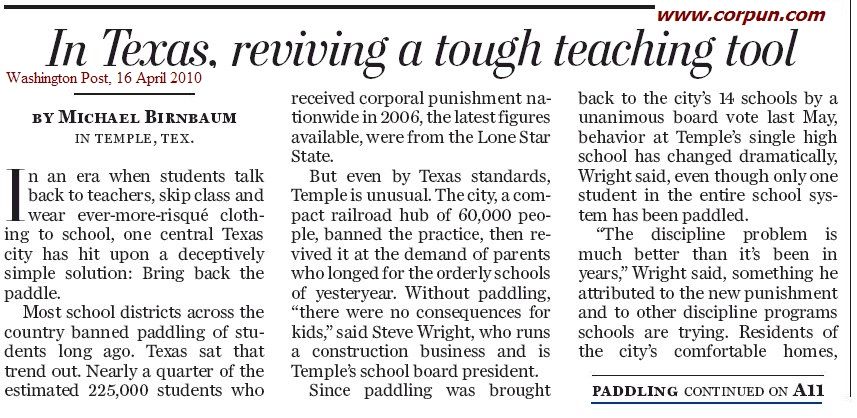wpbf.com (WPBF-TV ABC25), West Palm Beach, Florida, 1 April 2010
Senior Suspended For Skimpy Prom Dress
Dress Deemed Too Short, Revealing On Top
OXFORD, Ala. -- A high school senior in Alabama was suspended for wearing a prom dress that school officials said was too short at the hem and too revealing on top.
"I was so excited because it was my senior prom and I'd never been to a senior prom, so I was excited," Oxford High School student Erica DeRamus said.
DeRamus said she knew her school had dress code policies, but didn't think her dress would violate them. But when she got to prom Saturday, officials told her it was too short and too revealing.
"What cleavage? That's exactly what I said. I wasn't trying to be rude or anything, but that's what I feel," DeRamus said.
"If I felt it was too much cleavage in this dress, I wouldn't have purchased this dress," said her mother, Darrie DeRamus. "It would have stayed in that store and I wouldn't have even gotten it off the Internet and paid for it."
But principal Trey Holloday said it violated school policy stating that dresses cannot have cleavage falling below the breastbone or hems more than 6 inches above the knee.
"And so that expectation in our community is that it's there for protection of kids and not for management of kids," he said.
Erica's mother said she was never notified of the prom dress code.
But Holloday said all parents and students were told about it not once, but three times.
Of the 352 students who attended prom, 18 violated the policy, he said. Seventeen of them chose to be paddled, while DeRamus chose a three-day suspension, Holloday said.
"We're too old to be paddled," Erica DeRamus said. "This is high school. We are seniors. If you're going to act up, give us another option besides getting paddled, because this is not the 1940s. We don't take corporal punishment now."
"The thing that I would say is the difference between patience and tolerance," Holloday said. "They're young and sometimes they make young people's mistakes and we're very patient when those things are made, including this. But we're not tolerant of bad behavior or defiance."
RELATED VIDEO CLIP
Two-minute news report on the above case, from WBRC-TV (Fox) in Birmingham, AL (1 April 2010). This is not centrally about CP but it is of interest because of the mention, almost in passing, that the student interviewed here was the only one of 18 students in violation of the dress code who chose suspension instead of a paddling. It is quite odd that she maintains that "we don't take corporal punishment now", when her 17 companions did in fact opt to be paddled. According to unconfirmed sources, in addition to these girls there were also 8 senior boys spanked for inappropriate attire at the prom, in their case allegedly for wearing sneakers instead of formal shoes. If true, this would explain why the Anniston Star reported (31 March)
that "about 25" students were disciplined altogether. There was a lot of internet discussion about this case, some of it clearly ill-informed. Contrary to some suggestions, it is evident from the Anniston Star piece that the paddlings were administered the following week, not at the Saturday prom itself.
HERE IS THE CLIP:
This video clip is not currently available.
IMPORTANT: Copyright in this video material rests with the original copyright holders. This brief excerpt is reproduced under the "fair use" doctrine
for private, non-profit, historical research and education purposes only. It must not be redistributed or republished in any commercial context.
Ocala Star-Banner, Florida, 14 April 2010
School Board's ban on paddling draws mixed reviews
Decision removes corporal punishment from code of conduct.
By Joe Callahan
Staff writer
The fear is gone.
Having a paddle hanging on the wall of the dean's office had a way of keeping some children in line, some principals say, while other administrators believe swatting a child three times sends the wrong signal.
Regardless of what side they are on, principals must retire those paddles in June. The [Marion County] School Board voted Tuesday to remove the option from the 2010-11 Code of Student Conduct.
The decision came suddenly, just six weeks after the majority of the School Board was in favor of leaving the option available to principals.
Principals decide whether paddling will be used. About half -- mostly in elementary schools -- occasionally authorize paddling to curb problem behavior, the School District said.
Jason Haverkamp, Shady Hill Elementary assistant principal and former dean of discipline, said paddling is a good tool with some children.
He said 75 percent of the students at his school who received three swats have never been referred back to the office for discipline.
"It is effective," said Haverkamp, adding they try give the child the experience of a loving parent: explain why they are getting paddled and hugging them after it's over.
Until Tuesday's decision, parents were sent a letter at the beginning of school explaining that they could request that their child not be paddled.
If they did not respond, administrators would assume that the parents supported paddling. However, school principals still called parents to get permission.
Marion County resident and parent Micah Huston wrote in an e-mail to the Star-Banner: The "School Board actually presumes to have our permission until told otherwise. I'm glad to see it (the paddling option) gone."
Until the decision, a principal, or a designee, could issue three swats with a paddle in front of a witness. Board member Jackie Porter said she believes paddling is appropriate, but only if it is administered consistently throughout the district. She said it is not, considering some principals use the method and others choose not to use it.
Ward-Highlands Elementary principal Gary Smallridge is a supporter of corporal punishment as a discipline tool.
Smallridge -- and his assistant principals and deans -- have administered 99 of the School District's 453 paddlings in the past two school years.
As principal at Maplewood Elementary in 2008-09, Smallridge's school led the county with 52 of the county's 288 paddlings. This year, Ward-Highlands leads with 47 of the county's 165 paddlings.
Smallridge said he is disappointed by the School Board's decision. He pointed to the fact that some kids improved their behavior after corporal punishment.
"I'm basically disappointed when I got the news," Smallridge said. "It's not the end of the world. The fact is only 3 percent of the kids were paddled and 100 percent of their parents gave permission. It's one less tool in the tool chest."
The veteran educator said that before habitually unruly children are paddled, he sends a corrective behavior plan home to their parents.
The parent signs the document and sends it to the school. Smallridge further stated that "principals are only using this because the School Board had put it into policy."
On the flip side, John McCollum III -- principal at both Osceola Middle and Eighth Street Elementary -- said two months ago that he doesn't support paddling.
"At the middle school level, they are becoming adults" and there are other available disciplinary avenues they can take, he said.
"But we don't even do it at Eighth Street," said McCollum, who once used the option early in his career.
In February, board members Jackie Porter, Ron Crawford and Sue Mosley wanted principals to have paddling remain an option.
By Tuesday night, Porter had flip-flopped, voting with Judi Zanetti and Bobby James, all of whom said they want to avoid any chance of liability.
Zanetti traveled the county interviewing principals, assistant principals and deans about their opinion in regards to paddling students.
Copyright © 2010 Ocala.com -- All rights reserved.
The Advocate, Baton Rouge, Louisiana, 15 April 2010
Bill to limit school paddlings shelved
By Will Sentell
Advocate Capitol News Bureau
ARTHUR D. LAUCK/The AdvocateState Rep. Clif Richardson, R-Central, questions Rep. Barbara Norton, D-Shreveport, on Wednesday about her bill that would ban paddling in public schools.
A bill that would require written parental permission for public school students to be paddled was rejected Wednesday by the state House Education Committee.
"I don't know why it is so important that we continue to whip children," said state Rep. Barbara Norton, D-Shreveport and sponsor of the bill.
The committee rejected the measure, with six members voting "yes" and eight voting "no" despite an amendment designed to placate critics of the legislation.
"I view paddling as a form of discipline," said state Rep. Clif Richardson, R-Central and a leader of opponents of the bill.
Norton's original proposal would have banned the paddling, also known as corporal punishment.
However, the measure was amended so that:
-- Parents or legal guardians would have to give written permission before any paddling.
-- Each such episode would have to be accompanied by written documentation, including the time, date and details of the infraction.
--Only a principal or his designee could administer a paddling, and only in the presence of another adult school employee.
State Rep. John Bell Edwards, D-Amite and sponsor of the amendment, predicted most school districts would do away with corporal punishment rather than comply with all the new rules.
"In the vast majority of the state it will accomplish what you are trying to accomplish," Edwards told Norton.
The committee approved the amendment 13-2.
But Richardson said, in general, school districts that paddle students already get the permission of parents first.
"Some school districts must think it is a benefit to have that," he said of paddling policies.
Norton said that, in many cases, the same students are targets of corporal punishment year after year.
"I don't know why it is that we think we need corporal punishment when it is not working," she said. "We need to put an end to this."
A state survey shows that 14 school districts prohibit corporal punishment, including the East Baton Rouge Parish School District, said Patrick Dobard, deputy director of government affairs for the state Department of Education.
School paddlings are allowed in 48 other school districts, Dobard said.
The state Board of Elementary and Secondary Education voted 6-2 to support Norton's original bill to ban paddling, he said.
Gov. Bobby Jindal had concerns about the outright ban, said Erin Bendily, Jindal's education policy adviser.
Bendily told the committee that the amended version raised questions about putting too many burdens on local school districts.
"It appears to place a lot of additional regulations on schools," she said.
The committee voted 6-8 against a motion to approve Norton's bill.
It then voted 8-6 to shelve the measure, which cripples any chances for approval this year.
Voting to shelve the proposal were Reps. Thomas Carmody, R-Shreveport, Steve Carter, R-Baton Rouge, Billy Chandler, D-Dry Prong, Bubba Chaney, D-Rayville, Frank Hoffmann, R-West Monroe, Clif Richardson, R-Central, Harold Ritchie, D-Bogalusa and John Schroder, R-Covington.
Opposed were Reps. Elton Aubert, D-Vacherie, Herbert Dixon, D-Alexandria, Hollis Downs, R-Ruston, John Bel Edwards, D-Amite, Rickey Hardy, D-Lafayette and Major Thibaut, D-New Roads.
myfoxhouston.com (KRIV-TV), Houston, Texas, 15 April 2010
Houston Man Paddles New York Congresswoman
By Ned Hibberd
ReporterHOUSTON - Should paddling be banned in public schools across the U.S.? That question was tossed about on Thursday at a Congressional hearing.
Thirty states already outlaw corporal punishment in taxpayer-funded classrooms. Texas is not among them.
Jimmy Dunne, a former teacher, wants to change that.
"I paddled some students at Black Junior High School (in the 1960s) and after a while, I started wondering, 'Why are we doing this?'"
This week, Dunne supplied a slab of wood to a New York Congresswoman, who held it aloft at the podium as she convened a hearing on corporal punishment in Washington, D.C. on Thursday morning.
"This particular paddle," said U.S. Rep. Carolyn McCarthy, "was sent by a gentleman in Texas, Jimmy Dunne."
McCarthy is crafting a bill that would abolish spanking in schools. She has the full support of Dunne, the president of People Opposed to Paddling Students or POPS.
Dunne crusades against a practice that turns backsides black-and-blue and, he believes, inflicts longer-lasting damage on young psyches.
After all, Dunne points out, parents and teachers are supposed to be role models.
"When they hit, slap or spank, they're teaching the children to hit. So it makes (children) more aggressive, makes them more violent."
The Houston Independent School District has banned paddling for almost a decade.
But North Forest ISD allows it, with parental permission. And so do other, mainly rural, Texas school districts.
State Rep. Harold Dutton supports a school's right to paddle petulant pupils.
"If you're going to outlaw a disciplinary procedure, I mean, what do you put in its place?," asked Dutton.
Just about anything else, Jimmy Dunne might respond.
Dunne still recalls the one time he was "whupped," by a coach at Pershing Junior High.
"So that's the only one I got, but people always remember their paddlings."
Some, including Rep. Harold Dutton, would argue that is why corporal punishment is effective.
His main question: doesn't Washington have more pressing issues to tackle?
TM and © 2010 Fox Television Stations, Inc., and its related entities. All rights reserved.
RELATED VIDEO CLIP
3½-minute news report by Fox 26 News (KRIV), Houston, 15 April 2010, of which the above is an abbreviated text version. Offers a Texas perspective on a proposal to outlaw school paddling at Federal level. Anti-CP activist Jimmy Dunne gives his views at some length, as also does a law professor, who claims, apparently on the basis of purely anecdotal evidence, that schools "often" ignore parents' wishes that CP not be used -- which may still be true in some places but clearly is not the case in many others.
HERE IS THE CLIP:
This video clip is not currently available.
IMPORTANT: Copyright in this video material rests with the original copyright holders. This brief excerpt is reproduced under the "fair use" doctrine
for private, non-profit, historical research and education purposes only. It must not be redistributed or republished in any commercial context.
ABC13.com (KTRK-TV), Houston, Texas, 16 April 2010
Paddling still used as punishment in schools
(extracts)
ALVIN, TX (KTRK) -- One year after bringing back the paddle at a central Texas school, the Temple school district says the policy is working. Parents in Temple demanded the change last year. Now, the district says behavior at schools has improved dramatically.
You might think paddling doesn't happen around here anymore, but it does. Spanking and paddling is a polarizing issue and it's a policy that was revived in Alvin ISD in 2008.
It's a throwback technique used to set kids straight. Alvin ISD policy states "corporal punishment may be used as a discipline management technique limited to spanking and paddling."
Parents must sign off on the policy at the beginning of each school year. On a form, they can check either yes or no. Manvel High School Principal Darrell Alexander said, "We send home that policy, and some parents do check yes, but we don't use it here."
The school district refused to let us speak with a principal who uses the policy. But Alexander says some parents request students be paddled if necessary.
"Maybe five to ten times a year, a parent may request or want us to do it," Alexander explained. "I think that's because they revert back to when they were in school, when it was more common."
Gary Wiltz is one of those parents.
He said, "I think corporal punishment is probably what we need to go back to because it worked for us."
According to Alvin ISD, with parental permission, an unruly student may be taken to an administrator's office and, in private, receive three swats to the bottom. A second administrator is on hand as a witness.
[...]
Most of these techniques are used in high schools rather than elementary schools. Alvin's policy will be reviewed by end of school year. At that point, it'll be up to school board to decide if they choose to keep the policy.
Most school districts banned paddling in schools a long time ago. We checked with several districts in our area and found Houston, Fort Bend and Cy-Fair do not paddle students.
Copyright © 2010 KTRK-TV/DT. All Rights Reserved.
RELATED VIDEO CLIP
News report (4 minutes) on school CP in Texas by ABC13 (KTRK-TV), Houston, 16 April 2010, of which the above is a text version. States that the reintroduction of CP at Temple ISD has been a success. Reports from Alvin ISD, where some schools use paddling, but not Manvel High, whose principal is interviewed. Also yet another interview with Jimmy Dunne of POPS. Brief selection of viewers' online comments on both sides of the argument.
HERE IS THE CLIP:
This video clip is not currently available.
IMPORTANT: Copyright in this video material rests with the original copyright holders. This brief excerpt is reproduced under the "fair use" doctrine
for private, non-profit, historical research and education purposes only. It must not be redistributed or republished in any commercial context.
The Washington Post, 16 April 2010
In Texas, reviving a tough teaching tool
Texas city takes a swat at student misbehavior with an old custom
By Michael Birnbaum
Washington Post Staff Writer

Texas has bucked a national trend toward eliminating corporal punishment in schools. (Tom Fox/Dallas Morning News)
TEMPLE, TEX. -- In an era when students talk back to teachers, skip class and wear ever-more-risqué clothing to school, one central Texas city has hit upon a deceptively simple solution: Bring back the paddle.
Most school districts across the country banned paddling of students long ago. Texas sat that trend out. Nearly a quarter of the estimated 225,000 students who received corporal punishment nationwide in 2006, the latest figures available, were from the Lone Star State.
But even by Texas standards, Temple is unusual. The city, a compact railroad hub of 60,000 people, banned the practice and then revived it at the demand of parents who longed for the orderly schools of yesteryear. Without paddling, "there were no consequences for kids," said Steve Wright, who runs a construction business and is Temple's school board president.
Since paddling was brought back to the city's 14 schools by a unanimous board vote last May, behavior at Temple's single high school has changed dramatically, Wright said, even though only one student in the school system has been paddled.
"The discipline problem is much better than it's been in years," Wright said, something he attributed to the new punishment and to other discipline programs schools are trying. Residents of the city's comfortable homes, most of which sport neighborly, worn chairs out front, praise the change.
"There are times when maybe a good crack might not be a bad idea," said Robert Pippin, a custom home builder who sports a goatee and cowboy boots. His son graduated from Temple schools several years ago.
Corporal punishment remains legal in 20 states, mostly in the South, but its use is diminishing. Ohio ended it last year, and a movement for a federal ban is afoot. A House subcommittee held a hearing on the practice Thursday, and its chairman, Rep. Carolyn McCarthy (D-N.Y.), is gearing up for a push to end the practice once and for all. She plans to introduce legislation within weeks.
"When you look that the federal government has outlawed physical punishment in prisons, I think the time has come that we should do it in schools," she said.
A joint American Civil Liberties Union-Human Rights Watch report last year found that students with disabilities were disproportionately subjected to corporal punishment, sometimes in direct response to behavioral problems that were a result of their disabilities. Many educators and psychologists say that positive tools, such as giving praise for good behavior and withholding it for bad, are far more effective for discouraging misbehavior.
Those techniques "encourage them to behave well in the future," said report author Alice Farmer. Paddling "makes students lose respect for their teachers."
Rules about paddling vary from district to district, but typically only administrators, not teachers, can mete out the punishment, which is done in private. Usually, a long, flat wooden paddle is used to give as many as three blows across the student's clothed rear end, although Farmer found students who had been hit many more times. Boys are overwhelmingly the target.
Not everybody in Texas is gung-ho about paddling. The practice has been banned in the state's big cities, and its use varies from campus to campus in districts that allow it.
In Alvin, a formerly agricultural city of 23,000 that has been swallowed by Houston's suburbs in the past decade, the policy is on the books but not used in many schools.
"I don't think it's that simple anymore," said Terry Constantine, who added that she hasn't swung a paddle in her 16 years as an elementary school principal there. "We look for our parents to work with us now."
At Alvin High School, where the technique is used, Principal Kevon Wells said he had paddled students about six times this school year. If a student continued to misbehave, he said, he wouldn't do it again. "I'm not into beating kids," he said.
But in Temple, a city just outside Fort Hood that shakes with the air horns of the trains that pass through its rail yards, many residents say they hope that the old-fashioned solution can address what they see as rising disrespect among youth. They say their discipline problems aren't different from those in any other school system in the country: students showing up late for class, or violating the dress code, or talking during lessons. Those habits were unheard of in the days when schoolteachers routinely swung a paddle, they say.
"Back then, you wouldn't throw spitballs, because you were afraid of the consequences," said Darr Kuykendall, a worker for a plumbing supply company.
"A lot of kids have tempers," said Abby Jones, a junior at Temple High School. "Those kids that would be paddled would think of it as a threat . . . and maybe would be better."
Parents also pushed for the change because many paddle their children at home and wanted consistent discipline in the classroom, said John Hancock, assistant superintendent of administration for the Temple schools, who has been an educator for more than 40 years.
"We're rural central Texas. We're very well educated, but still there are those core values. Churches are full on Sundays," Hancock said. "This is a tool we'd like in the toolbox for responding to discipline issues."
Hancock, an urbane, sturdily built Colorado native who wears horn-rimmed glasses, said the school system had banned corporal punishment about six years ago because a state law change made what was permissible uncertain. Follow-up made clear that schools could paddle, he said.
Since the policy was changed in May, the school system has paddled only one student, and that was at the request of his parent, Hancock said.
Many districts, including Temple, which is nearly evenly divided among white, black and Hispanic students, require parental consent before the punishment is given. Temple also requires the student's consent, Hancock said, and the punishment is considered equivalent to an out-of-school suspension.
Residents said restoring paddling is less about the punishment and more about the threat.
"It's like speeding," said Bill Woodward, a graphic designer. "Are they going to give you a speeding ticket, or . . . a warning? I'd speed all day if I knew it was going to be a warning."
© 2010 The Washington Post Company
RELATED VIDEO CLIP
One-minute news report by KCEN-TV (NBC), Temple TX, 18 April 2010. Too brief an item to say anything much, but the local TV station evidently thought they had better mention the fact that their town had been the subject of a big article in the Washington Post (see above).
HERE IS THE CLIP:
This video clip is not currently available.
IMPORTANT: Copyright in this video material rests with the original copyright holders. This brief excerpt is reproduced under the "fair use" doctrine
for private, non-profit, historical research and education purposes only. It must not be redistributed or republished in any commercial context.
katu.com (KATU-TV), Portland, Oregon, 18 April 2010
High school paddling: 'It works' teachers say
By KATU News and KATU.com Staff
TEMPLE, Texas -- A new rule in Texas high schools has sparked an age-old debate.
The school district in Temple, Texas, now allows paddling. And school employees are saying it works.
Parents now can authorize their child's school principal to paddle or spank the high schoolers as a discipline technique. However, critics say paddling could result in dangerous behavior.
"It's your parents' job to do that," student Kevin Williams told ABC's Houston affiliate, KTRK. "But as far as my parents signing up for it, my mom probably would give permission; she feels if I need to be disciplined, I need to be disciplined."
As for Texas high-school student James Francis, he thinks "students can ... take whoopings and stuff like that. So, detention is [used] more because it's taken out of their time."
By the way, many parents pushed for the change. They reportedly said they wanted their kids to know there are consequences for their behavior.
RELATED VIDEO CLIP
News report (45 seconds) by KATU-TV, Portland, OR, 18 April 2010, of which the above is a text version. Yet another take on the Temple TX reintroduction story. As noted in these pages many times, citizens of northern/western non-paddling US states are frequently astonished to discover that school CP still exists in the South, so this TV station in distant, non-paddling Oregon is perhaps to be commended for running an item, howbeit brief, on paddling in Texas.
HERE IS THE CLIP:
This video clip is not currently available.
IMPORTANT: Copyright in this video material rests with the original copyright holders. This brief excerpt is reproduced under the "fair use" doctrine
for private, non-profit, historical research and education purposes only. It must not be redistributed or republished in any commercial context.
kcbd.com (KCBD NewsChannel 11), Lubbock, Texas, 19 April 2010
Corporal punishment legal in Texas, lawmaker in D.C. wants to ban it
By Ann Wyatt Little
Lubbock, TX (KCBD) -- Corporal punishment is legal in 20 states, including Texas. One Washington lawmaker is drafting legislation in an effort to stop spanking in schools across the country. It's a controversial topic across the country and has been for years.
The state of Texas says the decision to use corporal punishment is up to individual school districts and local districts on the South Plains see the issue differently.
"In LISD we have a local policy that allows principals to use corporal punishment," said Chief Academic Officer Dr. Kelly Trlica who adds that it is just one of many disciplinary techniques used in the district.
"I think it's used. It'd be difficult for me to speculate how many times it's used. I think if you ask average principal in Lubbock he or she would say it is used as a last resort or possibly when some other method has not been successful," added Dr. Trlica.
According to the LISD policy, principals must consider the age, size, condition of student, part of the body to be struck and amount of force to be used before any student is punished. Parents can object to the use under state law.
Down the road, Frenship and Lubbock-Cooper school districts put the paddle away.
"Spanking or paddling of a student is not approved and is not allowed or utilized as a form of punishment," said Andy Penney, director of public information for Frenship ISD, citing the school's code of conduct manual.
"If we preach to students don't solve problems with violence and if kid gets in trouble what do we do? We hit him. It makes no sense to me. I'm not critical to people who want to do it but for our district we've found it doesn't work and there are other ways," said LCISD Superintendent Pat Henderson about the district's decision to ban corporal punishment almost 15 years ago.
Parents and students see the policy differently.
"I did give permission for it. I respected the authority of the school system and also believed that it wasn't the first thing you do. Usually there is a series of disciplinary actions before you get to that stage," said April Nunn, mother of two.
"My Mom's thought is if they didn't raise me then they shouldn't be able to lay a hand on me," said student Kirsten Richards.
"The key -- it should be never be used maliciously or unreasonable and must be administered by a principal or designee and should be done under calm and collected circumstances where parents have been informed," said Dr. Trlica who adds that the district has not had problems with the policy.
According to the latest available numbers, of the estimated 225,000 students spanked in schools in 2006, nearly one fourth were from Texas.
Copyright 2010 KCBD. All rights reserved.
El Campo Leader-News, Texas, 24 April 2010
Paddling not controversial at local schools
By Brenda Sommer
Conversations statewide were initiated when a Temple school district last week [sic -- actually it was a year ago] brought back paddling as a means of punishment.
According to The Washington Post, most U.S. school districts have banned corporal punishment. Texas is an exception. Of the estimated 225,000 students spanked in schools in 2006, the latest available figures, nearly one-fourth were from Texas.
Banning paddling hasn't really been an issue for West Wharton County schools, which include the practice in their systems for dealing with discipline problems.
Corporal punishment is listed in the El Campo ISD student handbook as among the 24 ways the district may discipline a child. Parents are required to sign off on the handbook at the beginning of the school year, but may choose to tell the district not to spank their child.
"I'm sure there is some paddling that goes on, but I would have to say it's pretty limited and usually when the principal is talking with the parent and the parent says it's the best strategy," ECISD Superintendent Mark Pool said. "It's allowed, I just don't think they do it that much."
Pool said parents have actually asked school officials to paddle students but not for school infractions.
"We say, 'No, do it yourself,'" Pool said.
He added "a lot" of parents specify their child is not to be spanked.
"Those are flagged in our system," he said.
The district's operating rules codify how paddling occurs. The student must be told why they're being paddled, only a principal or designee administers the spanking, the paddle has to be approved by the principal, paddling has to happen where other students can't see it and at least two professional staffers have to be present when the child is hit.
Pool said in his years with the district, paddling hasn't come up as a matter of contention.
"It's never really been discussed since I've been here," he said. "It's never been an issue."
The situation is pretty much the same in the Louise Independent School District.
"We paddle," LISD Superintendent Andy Peters said. "Paddling is quick and easy and keeps the kid in the classroom learning."
He said the district's rules for paddling are pretty much the same as those at ECISD.
"The rules are the principal or his/her designee paddles and there has to be a witness," Peters said. "Everyone involved has to be a certified teacher or administrator. Also, the child's parent has to be informed. If the parent does not like this form of punishment, they can sign a statement and ask us to do something else."
He said he's worked in a number of rural districts and parents there want paddling in the schools.
"The folks are rural and they not only desire paddling, they often prefer it," Peters said. "Just this week, I have had at least two parents tell me, 'Bust their butt!'"
The district uses a wooden paddle, and Peters said there is no age limit for use of the discipline.
"Most paddling occurs in the elementary grades," he said. "Students usually get one or two licks, one per day of in-school suspension. It doesn't occur daily. They tend to run in streaks, but on the average, I would say we don't give 50 in a year, district-wide."
Peters said parents in his district tend to agree with the Biblical tenet from Proverbs, "spare the rod, spoil the child."Copyright © 2010 - El Campo Leader-News
Wilkes Journal Patriot, North Carolina, 28 April 2010
Parent: Written policy on spanking needed
By Jule Hubbard
A man with children in the Wilkes County schools told the Wilkes Board of Education Tuesday night that he was concerned about the lack of written information on corporal punishment (spanking) in the Wilkes schools.
James Arquitt of Moravian Falls said that when he learned about Central Wilkes Middle School students being spanked, he asked Wilkes school officials how corporal punishment was addressed in the local school system. Arquitt said it wasn't his own children who were spanked.
"State law requires that there be written notice in something like a student handbook" explaining what offenses could result in corporal punishment, he said."I can't find that this is written anywhere" in Wilkes school materials."Just in a practical sense, to keep parents informed, I think it makes sense for this to be written."
Arquitt added,"There needs to be a committee to study what the corporal punishment policy is in North Carolina (under state statutes) and give guidance to (Wilkes) school administrators on how it should be done.
"I'd like to think that parents would be notified in advance" before corporal punishment is used. "I would like this to be in place before the start of next school year."
Arquitt said a person who works for the Wilkes Department of Social Services told him that if bruises or other physical results of corporal punishment were visible over 24 hours after a parent used it on a child, the child could be removed from the home.
He said he spoke to people who said their children still had physical signs from where they were spanked in school 24 hours after it occurred.
"I think it (corporal punishment) is a legitimate form of punishment, but you are setting up school administrators to do something in the course of their work that could cause me as a parent, if I did it, to have the child removed from my home."
Arquitt said Wilkes school officials he spoke to about corporal punishment were helpful and cooperative.
Attorney Douglas Punger of Winston-Salem, working with Wilkes school board attorney Fred Johnson on a review of multiple Wilkes school policies, said in an interview that regardless of whether it occurred in a home or a school, there was no difference in the severity of corporal punishment allowed under state law.
Johnson said later in the meeting that the comments of Arquitt on corporal punishment and those of his wife, Laureen Arquitt, about bullying in the schools were timely because they're included in the review of school policies.
Mrs. Arquitt said she didn't think school officials did enough when she expressed concerns about some of her children being bullied. Laws responded,"We look into it (bullying issues) on a daily basis." The board recently approved a revised policy addressing bullying and discrimination.
The Arquitts spoke during the "public concerns" portion of the board's meeting.
Johnson said state law allows corporal punishment in the schools as a last resort under certain guidelines and that information on this would be presented for inclusion in school handbooks.
Corporal punishment is currently addressed in a Wilkes school policy titled,"School Plan for Management of Student Behavior, with the following paragraph,"The Board of Education does not prohibit corporal punishment, but believes that other consequences are generally more appropriate and effective for self-control. Reasonable force necessary to protect oneself or others is not considered corporal punishment. Employees using corporate punishment must follow state statutes and provisional guidelines. See G.S. 115C-391."
Dr. Steve Laws, Wilkes school superintendent, said corporal punishment is sometimes used in situations where students are given a choice between that and suspension from school.
Laws said Arquitt raised a valid concern about the lack of written information on Wilkes school policy for corporal punishment."We have absolutely no problem including a written policy that conforms with state statutes," said Laws.
State statutes require that local school boards adopt policies consistent with state and federal law governing conduct of students and establishing procedures for school officials in disciplining students, including with corporal punishment.
Under N.C. G.S. 115C-391, these school policies must at least say:
-- corporal punishment shall not be administered in a classroom with other children present;
-- the student body shall be informed beforehand what general types of misconduct could result in corporal punishment;
-- only a teacher, substitute teacher, principal, or assistant principal may administer corporal punishment and may do so only in the presence of a principal, assistant principal, teacher, substitute teacher, teacher assistant, or student teacher, who shall be informed beforehand and in the student's presence of the reason for the punishment;
-- an appropriate school official shall provide the child's parent or guardian with notification that corporal punishment has been administered, and upon request, the official who administered the corporal punishment shall provide the child's parent or guardian a written explanation of the reasons and the name of the second school official who was present.
"Each local board shall publish all the policies mandated by this subsection and make them available to each student and his parent or guardian at the beginning of each school year," say the statutes.
Statutes also say school personnel may use reasonable force, including corporal punishment, to control behavior or to remove a person from the scene when necessary in the following situations:
-- to quell a disturbance threatening injury to others;
-- to obtain possession of weapons or other dangerous objects on the person, or within the control, of a student;
-- for self-defense;
-- for the protection of persons or property;
-- to maintain order on school property, in the classroom, or at a school-related activity on or off school property.
© Copyright 2007-2008 Carter-Hubbard Publishing
Follow-up: 28 May 2010 - No grade below 55 among school policy changes
About this website
Search this site
Archive 2010: USA
Article: American school paddling
Other external links: US school CP
Video clips
Picture index
Previous month
Following month












